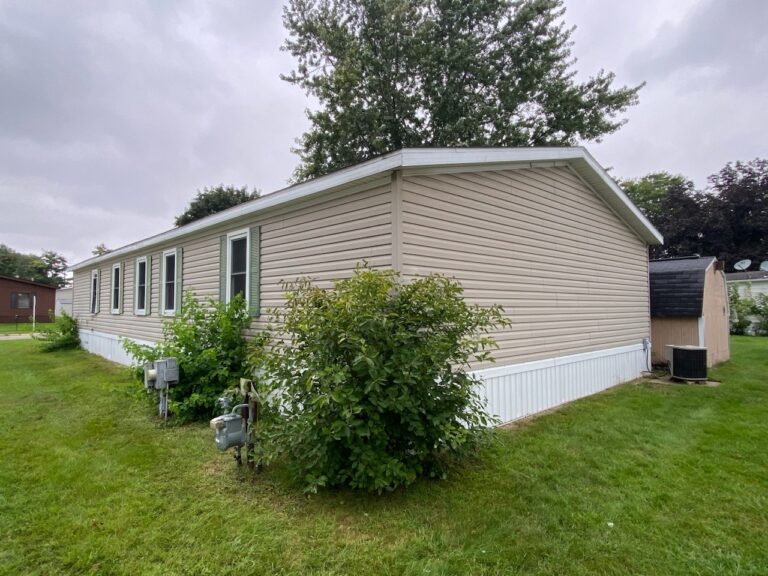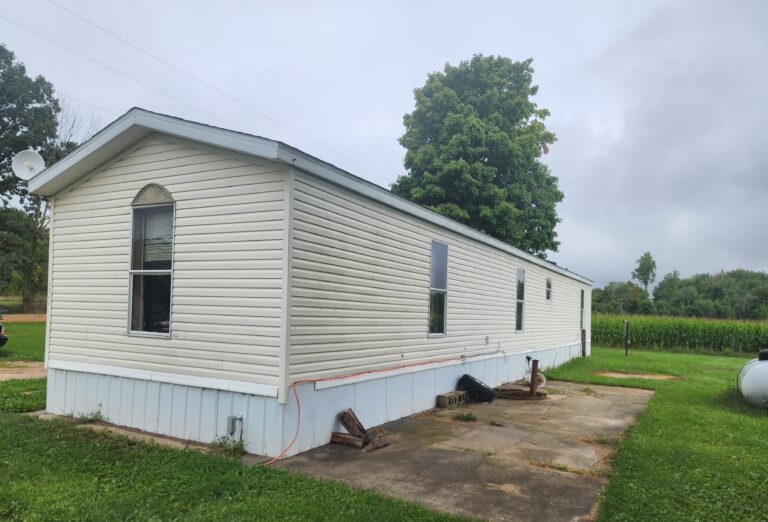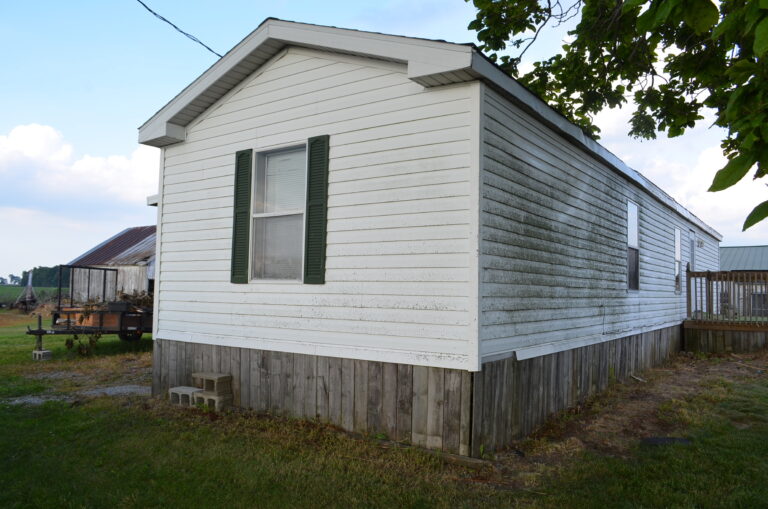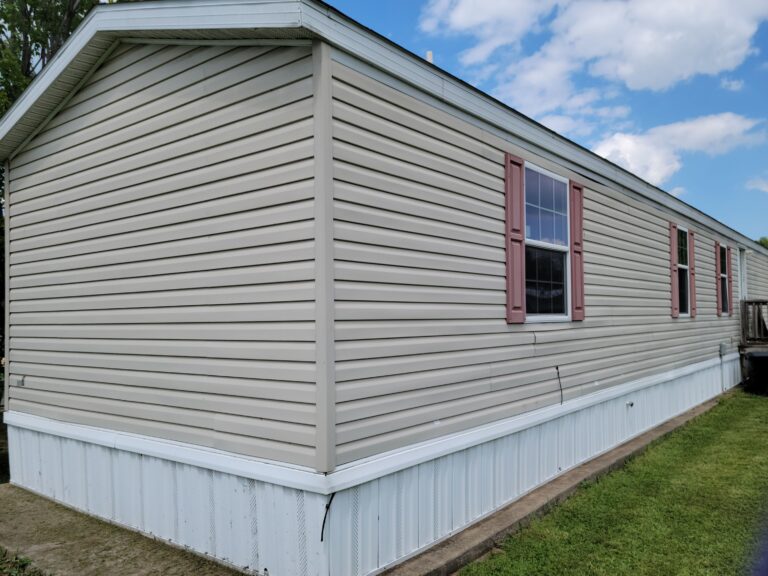Imagine the joy of waking up in your mobile home, surrounded by breathtaking views and a sense of tranquility. Now picture this: you’ve found the perfect spot to place your manufactured home, where every aspect aligns with your dreams and desires. Sounds enticing, doesn’t it? Well, look no further because selecting the right location for your mobile home is paramount to creating a haven that truly feels like home. We have also answered some of the most commonly answered questions when it comes to this topic in this article, we hope it helps you decide.
How to Select the Right Location for Your Mobile Home
Several factors come into play. From considering the amenities offered by different home communities to assessing the accessibility and proximity to essential services, each decision contributes to finding an ideal place for your cherished abode. But why is this choice so crucial? The benefits are abundant! Not only can the right location enhance your daily living experience, but it can also significantly impact the value of your investment.

We’ll explore various factors you should consider when deciding on a site and highlight how this choice can elevate both the enjoyment and future resale potential of your beloved dwelling. So buckle up as we embark on a journey to discover how finding the right spot can make all the difference!
Factors to Consider When Selecting a Site for Your Mobile Home
Choosing the right location for your mobile home is crucial to ensure a comfortable and convenient living experience. Here are some important factors you should consider when selecting a site:
Evaluating Proximity to Amenities
One of the most significant factors to consider is the proximity of amenities such as schools, shopping centers, and healthcare facilities. Living near these essential services can make your daily life more convenient and save you time and effort. Imagine having a school within walking distance, making it easier for your children to attend classes without long commutes. Similarly, having shopping centers nearby allows easy access to groceries and other necessities.
Considering Climate and Weather Conditions
Before settling on a site, it’s important to evaluate the climate and weather conditions in that area. Different regions have varying climates, ranging from hot summers to freezing winters or heavy rainfall throughout the year. Understanding the local climate will help you determine whether it aligns with your preferences and if your mobile home can withstand any extreme weather conditions.
Assessing Transportation Options and Accessibility: Selecting the Right Location for Your Mobile Home
Transportation options play a vital role in choosing the right location for your mobile home. Evaluate how accessible major roads or highways are from potential sites. Easy access to transportation networks not only facilitates commuting but also enhances connectivity with nearby towns or cities. This accessibility can be particularly beneficial if you work outside of your residential area or frequently visit friends and family.
Researching Local Crime Rates and Safety Factors
Safety is paramount when selecting a site for your mobile home. Research local crime rates before making any decisions. Look into community safety measures such as neighborhood watch programs or security systems in place within the vicinity of potential locations. Opting for an area with lower crime rates will provide peace of mind knowing that you’re living in a secure environment.
Considering these factors will ensure that you choose an optimal location for your mobile home—one that aligns with your lifestyle and preferences. Evaluating proximity to amenities, climate and weather conditions, transportation options, and safety factors are all crucial steps in making an informed decision. Take the time to thoroughly research each factor before settling on a site that meets your needs.
Remember, finding the right location is just the beginning of your mobile home journey. Once you’ve chosen a site, there are additional considerations such as zoning regulations, utility connections, and community rules that you’ll need to navigate. However, by starting with these important factors in mind, you can set yourself up for a successful mobile home living experience.
Question: What is the Best State For Mobile Homes?
The suitability of a state for mobile homes can depend on various factors, including climate, cost of living, job opportunities, and personal preferences. There isn’t a definitive “best” state for mobile homes, as it ultimately depends on your individual needs and priorities. However, some states are often considered popular choices for mobile home living due to factors such as affordability, favorable weather, and mobile home-friendly communities.
States like Florida, Texas, Arizona, and North Carolina are frequently mentioned as good options for mobile home living. These states often have a lower cost of living, favorable weather conditions, and communities that cater to mobile home residents. Additionally, some states may have specific regulations and zoning laws that are more accommodating to mobile homes.
It’s important to research and consider factors like weather preferences, job opportunities, healthcare, and community amenities when choosing a state for mobile home living. Each individual’s circumstances and priorities will influence what makes a particular state the best fit.

Understanding Lot Restrictions and Setbacks: Selecting the Right Location for Your Mobile Home
Before purchasing land for your mobile home, it is crucial to understand the lot restrictions and setbacks that may come into play. These regulations can have a significant impact on where you can place your manufactured home. Let’s delve into the importance of understanding these restrictions and setbacks.
Different Types of Zoning Regulations
Zoning regulations are guidelines set by local authorities that determine how land can be used within a specific area. They aim to maintain order and ensure compatibility among neighboring properties. Different types of zoning regulations may affect where you can place your dwelling.
In some areas, there are specific zones designated for mobile homes, while in others, they may be restricted to certain neighborhoods or communities. It is essential to research the zoning regulations in the area you are considering before making any commitments. This will help you avoid potential legal issues down the line.
Exploring Setback Requirements
Setback requirements refer to the minimum distance between your mobile home and property lines or other structures. These requirements are usually imposed by local authorities or homeowner associations and serve various purposes such as safety, privacy, and aesthetics.
Understanding setback requirements is crucial when choosing a location for your mobile home. Failure to comply with these regulations could result in fines or even forced relocation of your dwelling. Therefore, it is vital to thoroughly investigate setback requirements before finalizing any land purchase.
Impact of Lot Size, Shape, and Topography
The size, shape, and topography of the lot also play a significant role in determining where you can place your mobile home. Each factor presents its own challenges and considerations that need to be taken into account.
- Lot Size: Smaller lots may limit placement options due to space constraints.
- Lot Shape: Irregularly shaped lots might pose difficulties when trying to position your mobile home optimally.
- Topography: Sloping or uneven terrain can require additional preparation and may impact the cost of site preparation.
Considering these factors will help you make an informed decision about the suitability of a particular lot for your mobile home.
You might also be interested in our article: Obtaining Title for Abandoned Mobile Home: Step-by-Step
Exploring Alternatives to Buying Land for Your Manufactured Home
Renting land in a mobile home park or leasing land from private owners are viable alternatives to buying land for your manufactured home. These options provide flexibility and affordability, allowing you to enjoy the benefits of homeownership without the high costs associated with purchasing property.
Question: Can You Put a Mobile Home On Property?
Yes, in many cases, you can place a mobile home on private property, but zoning laws and local regulations vary, so it’s important to check with the local government to ensure compliance with any restrictions or requirements. Additionally, factors such as utilities, access, and permits may influence the feasibility of placing a mobile home on a specific piece of property.

Renting Land in a Mobile Home Park
One alternative is to rent land in a mobile home park. This option offers several advantages, including:
- Affordability: Renting a space in a mobile home park is often more affordable than buying land. It allows you to allocate your finances towards other aspects of homeownership, such as maintenance and upgrades.
- Community: Living in a mobile home park provides a sense of community and camaraderie. You’ll have neighbors who share similar lifestyles and interests, fostering social connections.
- Convenience: Mobile home parks typically offer amenities and services tailored specifically for manufactured homes. These may include recreational facilities, on-site maintenance, and security measures.
However, there are also some disadvantages to consider:
- Limited Control: When renting land, you have limited control over the property. You must adhere to the rules and regulations set by the mobile home park management.
- Lack of Equity: Unlike owning land, renting does not allow you to build equity over time. You won’t benefit from potential appreciation in property value.
Leasing Land from Private Owners: Selecting the Right Location For Your Mobile Home
Another alternative is leasing land from private owners. This option offers different advantages and considerations:
- Flexibility: Leasing land provides greater flexibility compared to renting in a mobile home park. You can negotiate lease terms directly with the owner based on your specific needs.
- Investment Potential: Leasing land allows you to invest in your manufactured home while potentially benefiting from any increase in property value if the owner decides to sell.
- Privacy: Leasing land from private owners often offers a greater level of privacy compared to living in a mobile home park.
However, there are also factors to keep in mind:
- Responsibility: Leasing land means taking on additional responsibilities, such as maintaining the property and complying with local regulations.
- Uncertainty: Leases typically have fixed terms, which may limit your long-term stability. The owner could decide not to renew the lease or sell the property.
When considering these alternatives, it’s crucial to research available options in your desired location. Look for manufactured home communities or private landowners who offer suitable opportunities. Evaluate community rules, fees, and restrictions associated with each option to ensure they align with your preferences and budget.
Question: Does It Make Sense To Live in a Mobile Home?
Living in a mobile home can make sense for individuals seeking a more affordable housing option with flexibility, but it may not be suitable for those looking for long-term stability or a traditional housing experience. The decision depends on personal preferences, financial considerations, and lifestyle priorities.

Be sure to check out our other articles:
Mobile Home Park Fencing: Options & Installation Guide

